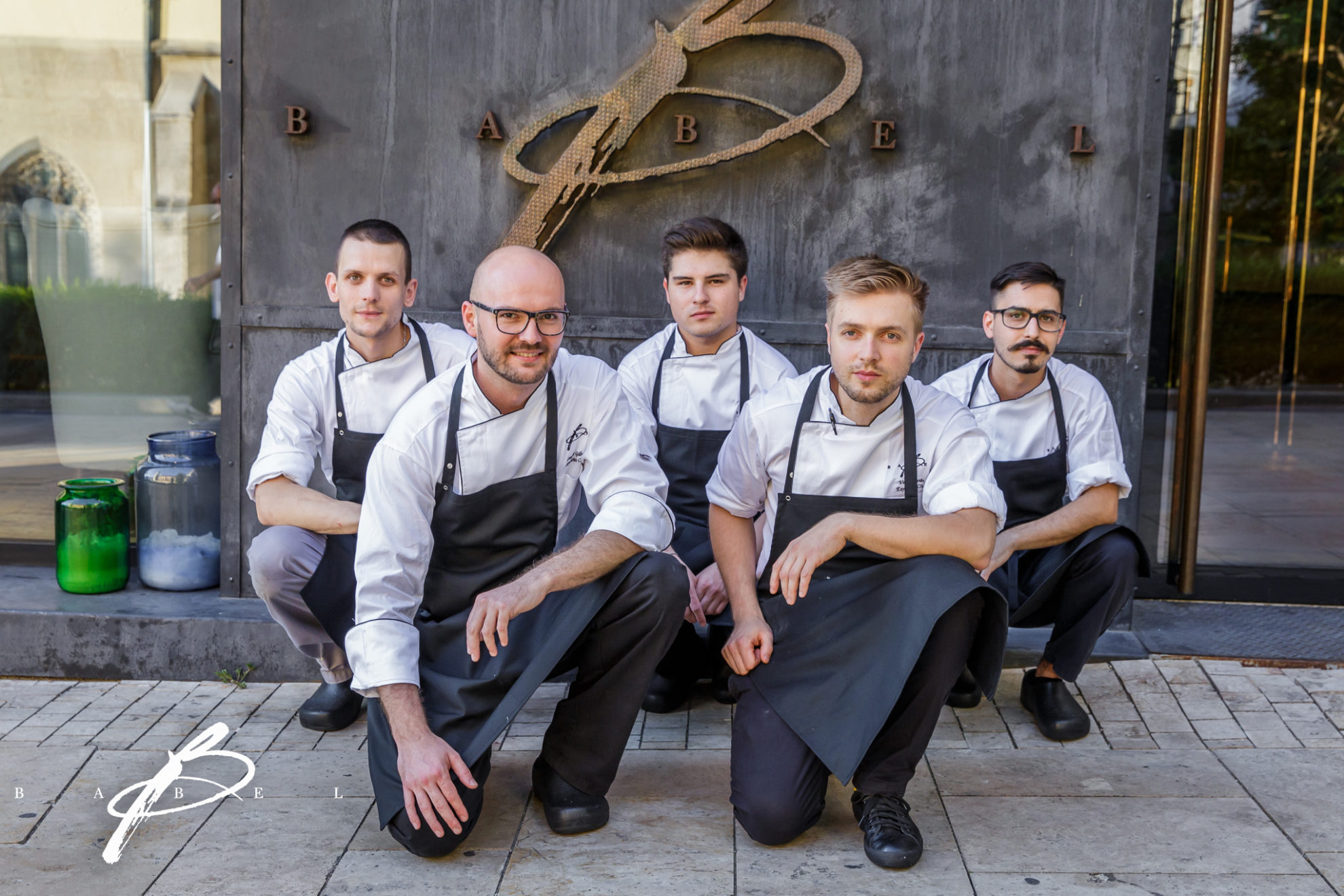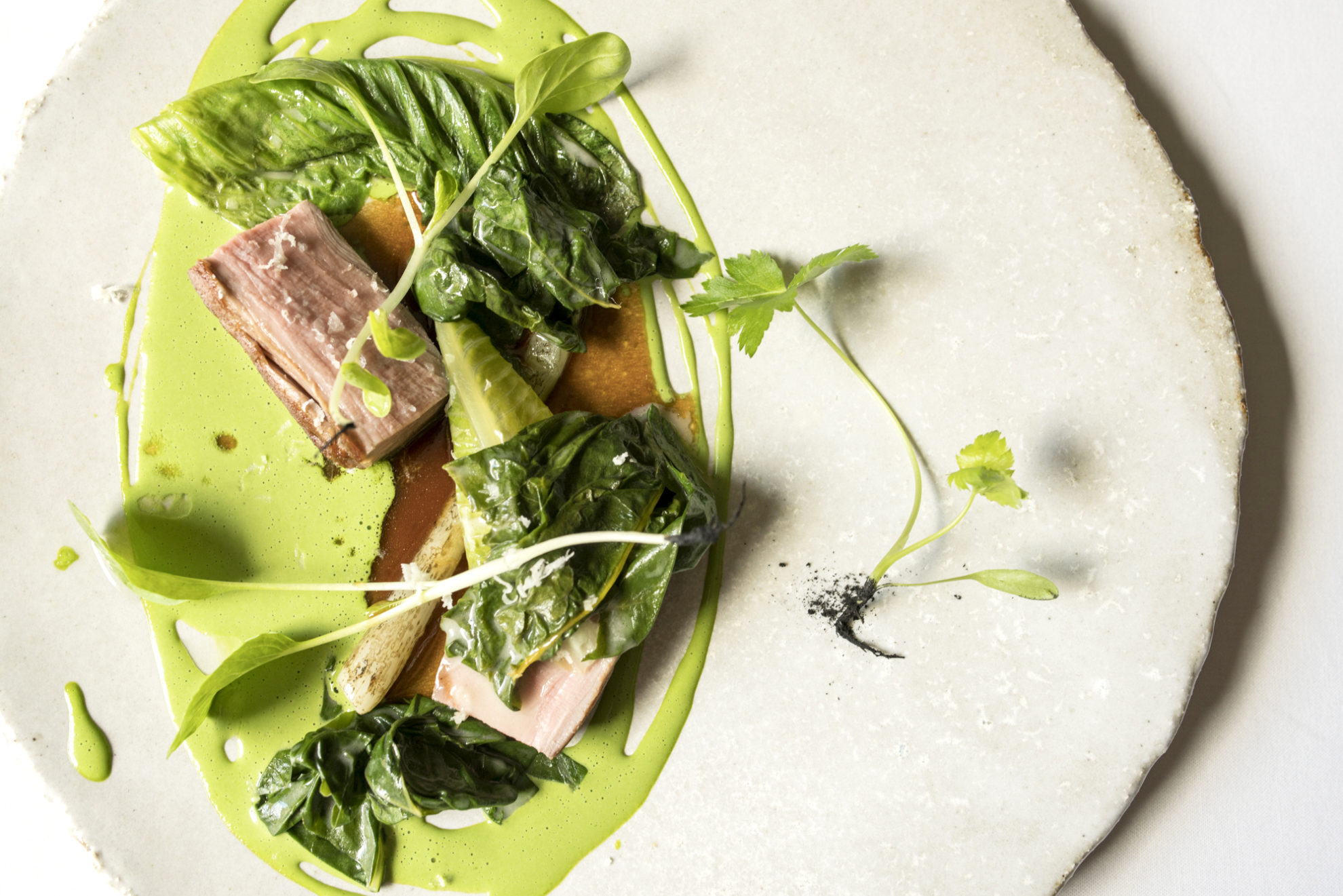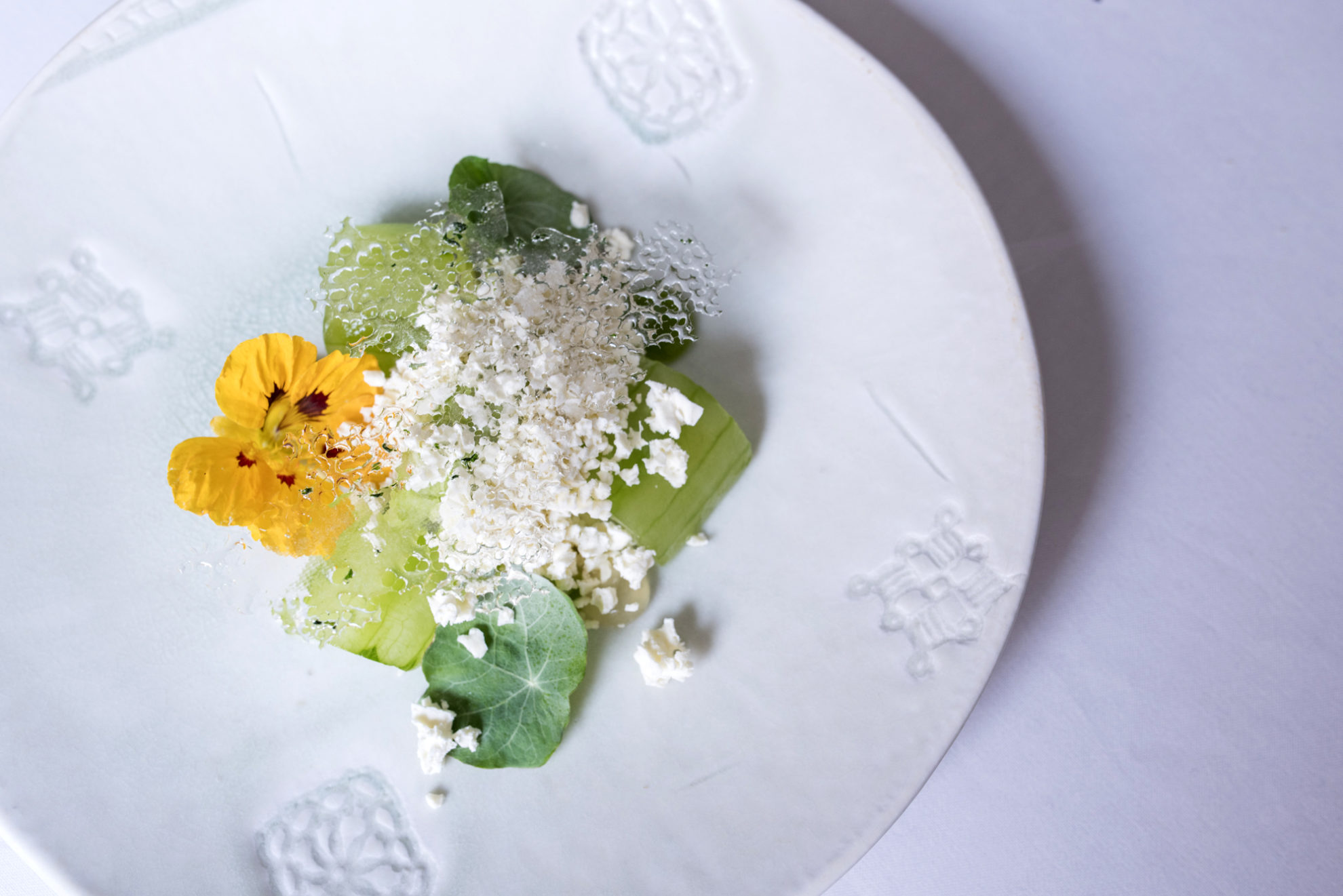We’re not going to over-egg the pudding, but it does seem that the ethnic Hungarians living in neighbouring countries possess some kind of transcendental desire to conquer the world. Not in a military sense, of course, like a pressurised container waiting to explode, but as a talent that breaks out like a force of nature to make its way in the world. One such example is the zither and violin virtuoso Félix Lajkó from Vojvodina (northern Serbia), who defies all expectations regarding normal use of his chosen instruments and plays them with a mastery that is almost devilish in its quality. Whatever form of music he encounters, it gains very special intensity and completely new emotional quality once it has filtered and washed through his system. His dancing violin could charm the stars down from the sky and turn black holes to light as it embraces, and is embraced by, the cosmos.
Even further from the border
And let’s now take a big leap and get to know the culinary philosophy of Alain Passard, who already had two Michelin stars at the age of 26 and now has a third aged 60. In addition to mastering all the ins and outs of classical cuisine, he has now gone his own way to become a leading guru in the art of plant-based, if not vegetarian, cooking. For this purpose, he currently maintains gardens and small farms he set up himself in three distinct regions. There can be no mistaking that the herbs and vegetables found in his kitchen are specific to the ‘terroir’ they are grown in. One plot produces the carrots and the asparagus, another the celeriac and a third the herbs, with all ingredients arriving strictly according to the seasons. Each year, he grows around 40 tons of organic vegetables on around six hectares of land. In addition to being a cult restaurant with three Michelin stars, L’Arpege in Paris is also an world-class training ground for young chefs and has introduced a succession of legendary chefs to the world.

Gábor Langer and István Veres (front row)
The Félix Lajkó of the kitchen
Enter István Veres – and here comes the reason for the extravagant introduction – the Félix Lajkó of the kitchen. He grew up in Kézdivásárhely, Romania, until he upped sticks and didn’t stop until reaching France, where he joined the aforementioned Alain Passard. We won’t go into the details now, but one thing is certain, it was a tough school for István and one not many people can battle through, because truly valuable knowledge, the secret, never comes cheap. No one who hungers for knowledge is handled with kid gloves, but anyone who comes out the other side makes it into the inner circle. István is blond and blue eyed. What that matters for a chef, I don’t know, but it is true to say that his gaze, his stubbornness, his apparent unpredictability and his natural naivety provide a stark contrast with his meticulous attention to detail and unwavering confidence as an artist in the kitchen. In virtuoso fashion, he instinctively chooses the more difficult and risky path, but he is fortunate to have a great asset by his side: He is flanked by fellow chef and equal partner Gábor Langer, whose calm and unflustered nature combines with a clinical precision and technological mastery that helps keep the unbridled imagination of his collaborator in check, allowing compositions to take shape on the plate and ideas to be focused and put into practice. Because the most typical of these dishes is that, while they are perfect in terms of taste, they do not go beyond their station as far as form is concerned. These are realisations of a clear concept such that the composition takes on a secretive, almost dramaturgical form as the layers are peeled back to reveal the underlying message in the meal.

Photo: Valuska Gábor
Out of the forest
Veres’s other fortunate gift is to have fantastic taste, which we could put down to Transylvanian roots, except that it would be a grave mistake to say that everyone in that part of the world knows how to cook. István has an instinctive sense for raw flavours that might even be coded into his DNA. He considers the forest a dear friend and a rich source of fragrances and flavours. It is true that it is not easy to evoke all this at the foot of Erzsébet Bridge, but the Passard school and a love of nature imported from his homeland has given Babel a completely new direction. The dishes are credible in every detail – it is no exaggeration to suggest that Alain Passard met Félix Lajkó and directed him to Babel to play his heart out in the form of István Veres. So let’s dance with abandon.

Photo: Valuska Gábor





Write a comment
To write a comment you should sign in to with your account